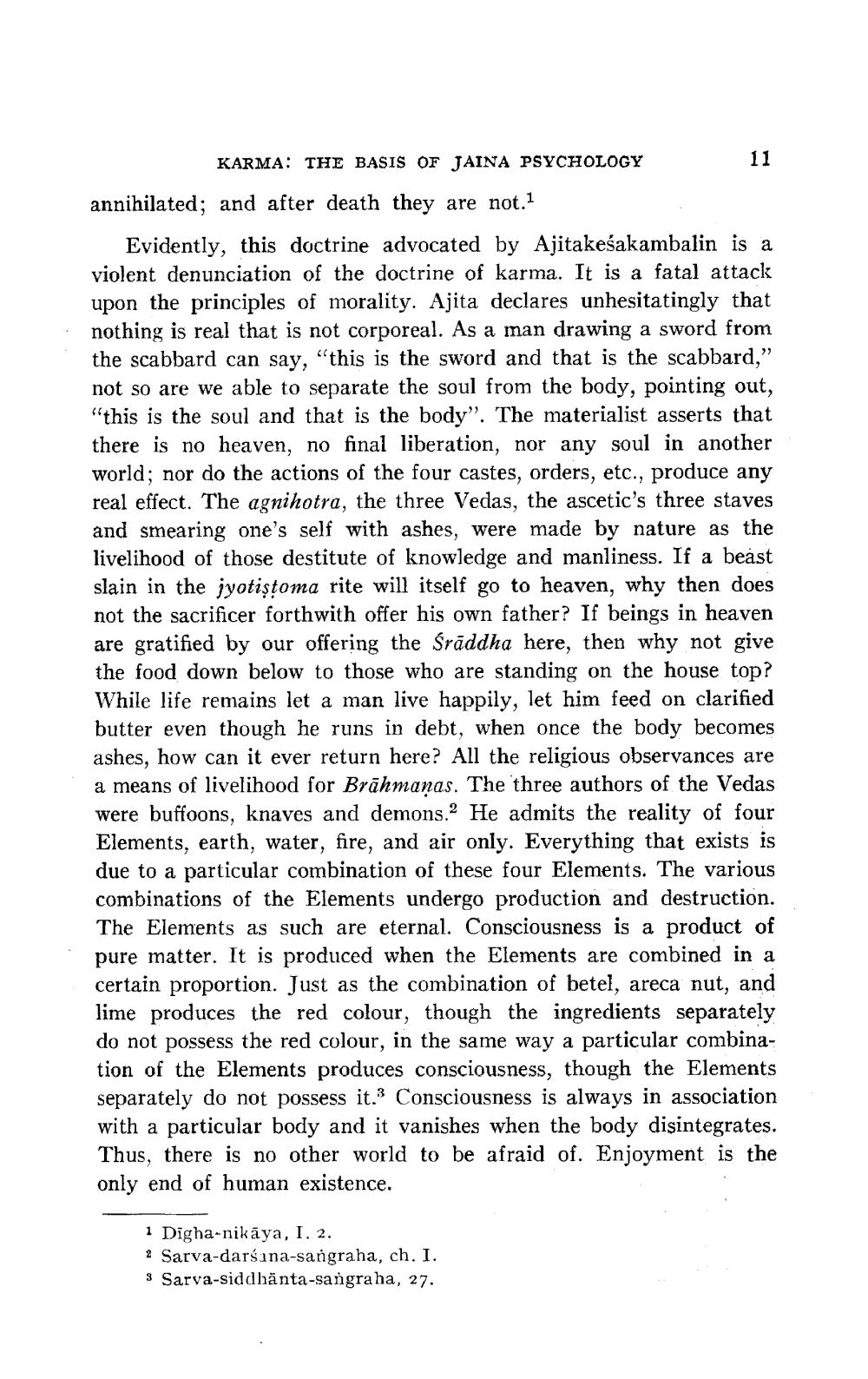________________
KARMA: THE BASIS OF JAINA PSYCHOLOGY
11
annihilated; and after death they are not.1
Evidently, this doctrine advocated by Ajitakeśakambalin is a violent denunciation of the doctrine of karma. It is a fatal attack upon the principles of morality. Ajita declares unhesitatingly that nothing is real that is not corporeal. As a man drawing a sword from the scabbard can say, "this is the sword and that is the scabbard," not so are we able to separate the soul from the body, pointing out, "this is the soul and that is the body". The materialist asserts that there is no heaven, no final liberation, nor any soul in another world; nor do the actions of the four castes, orders, etc., produce any real effect. The agnihotra, the three Vedas, the ascetic's three staves and smearing one's self with ashes, were made by nature as the livelihood of those destitute of knowledge and manliness. If a beast slain in the jyotiştoma rite will itself go to heaven, why then does not the sacrificer forthwith offer his own father? If beings in heaven are gratified by our offering the Śrāddha here, then why not give the food down below to those who are standing on the house top? While life remains let a man live happily, let him feed on clarified butter even though he runs in debt, when once the body becomes ashes, how can it ever return here? All the religious observances are a means of livelihood for Brāhmanas. The three authors of the Vedas were buffoons, knaves and demons.” He admits the reality of four Elements, earth, water, fire, and air only. Everything that exists is due to a particular combination of these four Elements. The various combinations of the Elements undergo production and destruction. The Elements as such are eternal. Consciousness is a product of pure matter. It is produced when the Elements are combined in a certain proportion. Just as the combination of betel, areca nut, and lime produces the red colour, though the ingredients separately do not possess the red colour, in the same way a particular combination of the Elements produces consciousness, though the Elements separately do not possess it. Consciousness is always in association with a particular body and it vanishes when the body dişintegrates. Thus, there is no other world to be afraid of. Enjoyment is the only end of human existence.
1 Dĩghanikaya, I, 2. 2 Sarva-darśana-sangraha, ch. I. 3 Sarva-siddhänta-sangraha, 27.




